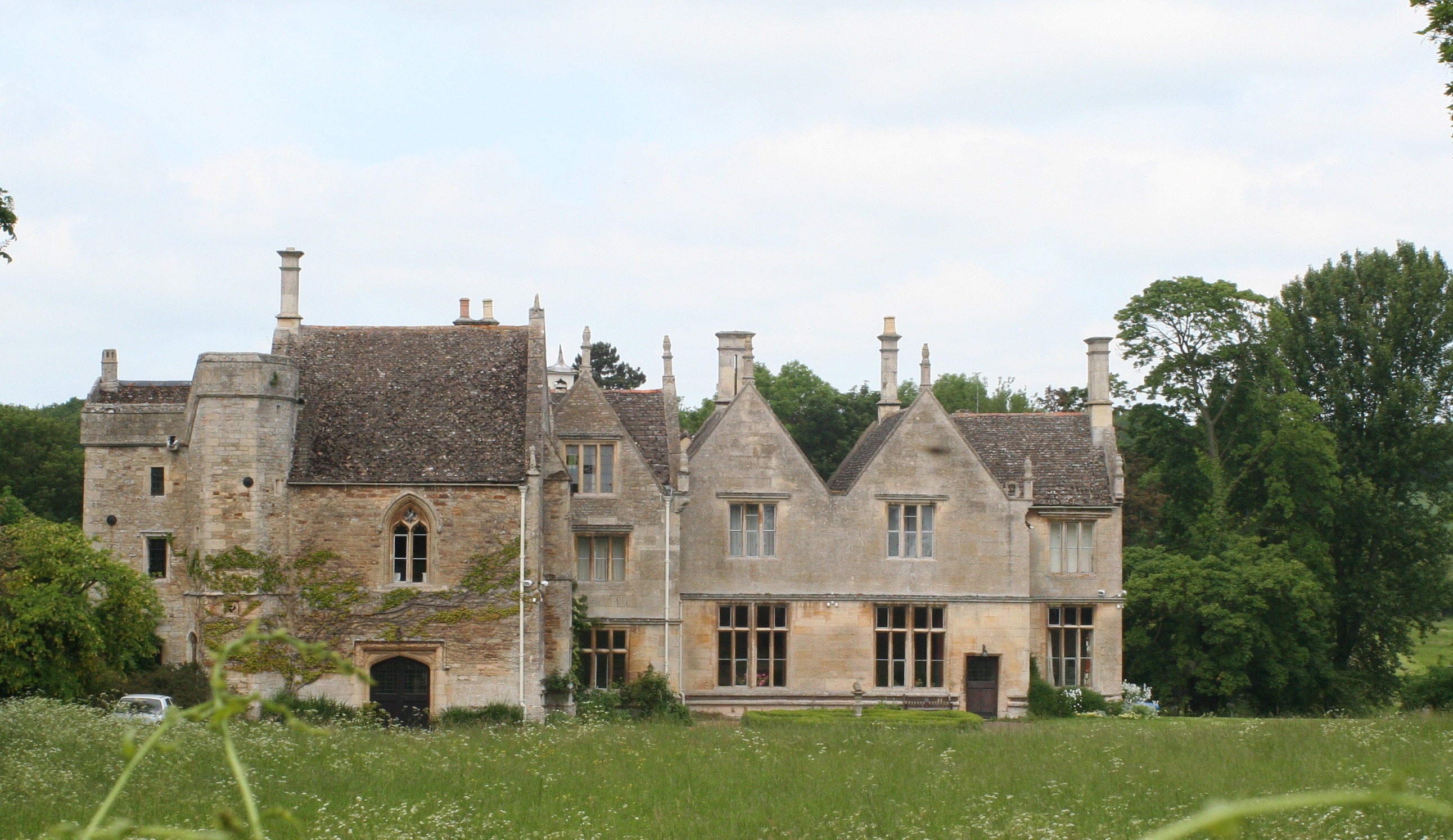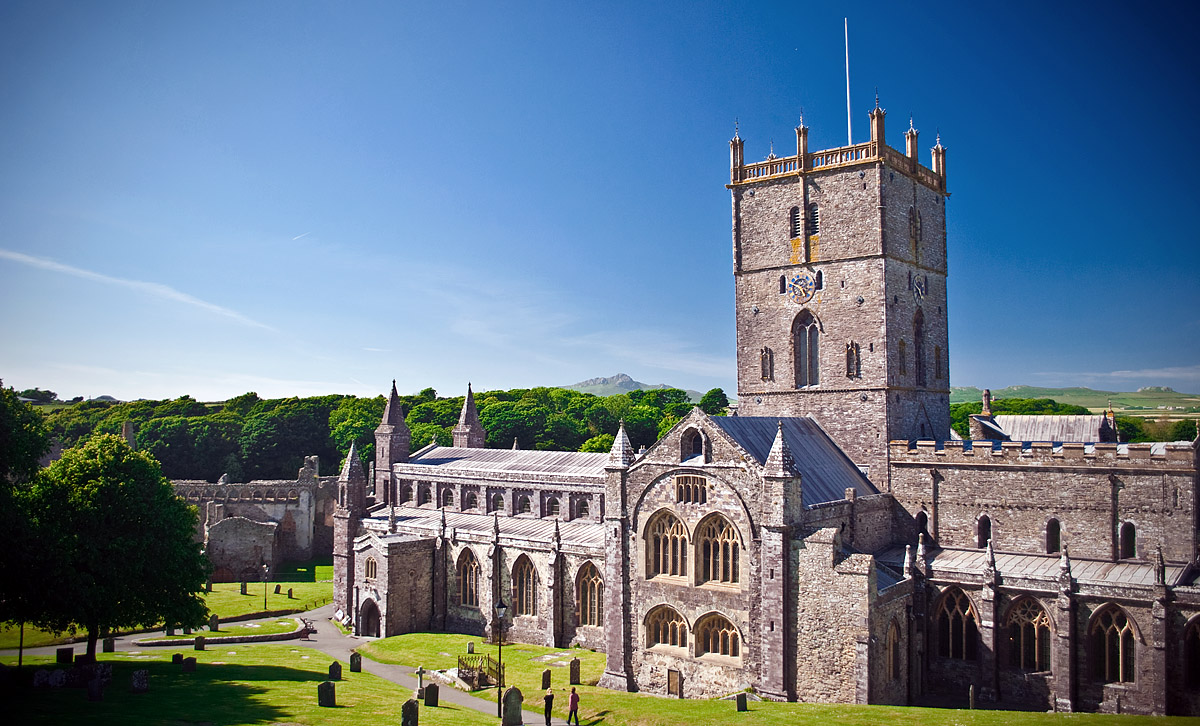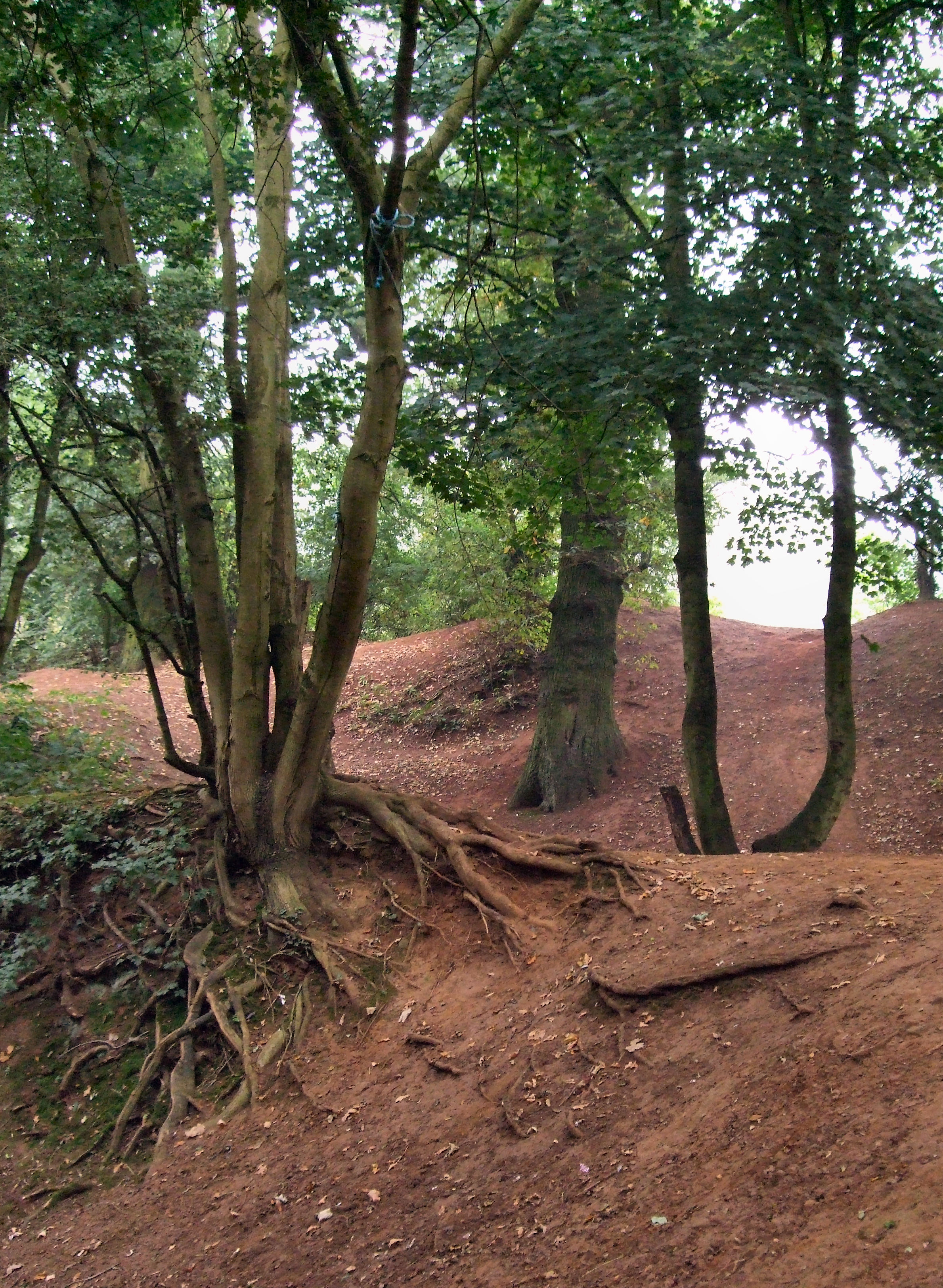|
John Knyvet
Sir John Knyvet (or Knivett) (died 16 February 1381) was an English lawyer and administrator. He was Chief Justice of the King's Bench from 1365 to 1372, and Lord Chancellor of England from 1372 to 1377. Life Knyvett was eldest son of Richard Knyvet of Southwick, Northamptonshire, and a keeper of the "Forest of Clyve" (now part of Rockingham Forest). His mother was Joanna, a daughter and the heiress of Sir John Wurth. He married Eleanor, daughter of Ralph, Lord Basset of Weldon, and they had four sons and a daughter. He owned and improved Southwick Manor, which he inherited from his father; the house still survives today. Knyvet was practicing in the courts as early as 1347; in 1357 he was called to the degree of Serjeant-at-law, and on 30 September 1361 was appointed a justice of the Court of Common Pleas. On 29 October 1365 he was raised to the office of Chief Justice of the King's bench. In the Parliament of 1362 he served as a "trier of petitions" for Aquitaine and other ... [...More Info...] [...Related Items...] OR: [Wikipedia] [Google] [Baidu] |
Southwick Hall, Northamptonshire
Southwick may refer to: People * Southwick (surname) Places India * Southwick, Ooty, a suburb of Ooty town in the state of Tamil Nadu England * Southwick, Hampshire (pronounced ''suth-ick''), a village * Southwick, Northamptonshire (pronounced ''suth-ick''), a small village * Southwick, a hamlet in the parish of Mark, Somerset * Southwick, Sunderland, a suburb of the City of Sunderland, Tyne and Wear * Southwick, West Sussex, a town in the Adur District ** Southwick (electoral division), a West Sussex County Council constituency ** Southwick Ship Canal * Southwick, Wiltshire, a village near Trowbridge Scotland * Southwick, Dumfries and Galloway, see Colvend and Southwick, former parish in Dumfries and Galloway United States * Southwick, Massachusetts, a town in Hampden County Other uses * Southwick angle A Southwick angle is a radiographic angle used to measure the severity of a slipped capital femoral epiphysis (SCFE) on a radiograph. It was named after Wayne O. Southwick, a ... [...More Info...] [...Related Items...] OR: [Wikipedia] [Google] [Baidu] |
Norfolk
Norfolk () is a ceremonial and non-metropolitan county in East Anglia in England. It borders Lincolnshire to the north-west, Cambridgeshire to the west and south-west, and Suffolk to the south. Its northern and eastern boundaries are the North Sea, with The Wash to the north-west. The county town is the city of Norwich. With an area of and a population of 859,400, Norfolk is a largely rural county with a population density of 401 per square mile (155 per km2). Of the county's population, 40% live in four major built up areas: Norwich (213,000), Great Yarmouth (63,000), King's Lynn (46,000) and Thetford (25,000). The Broads is a network of rivers and lakes in the east of the county, extending south into Suffolk. The area is protected by the Broads Authority and has similar status to a national park. History The area that was to become Norfolk was settled in pre-Roman times, (there were Palaeolithic settlers as early as 950,000 years ago) with camps along the highe ... [...More Info...] [...Related Items...] OR: [Wikipedia] [Google] [Baidu] |
14th-century English Judges
As a means of recording the passage of time, the 14th century was a century lasting from 1 January 1301 ( MCCCI), to 31 December 1400 ( MCD). It is estimated that the century witnessed the death of more than 45 million lives from political and natural disasters in both Europe and the Mongol Empire. West Africa experienced economic growth and prosperity. In Europe, the Black Death claimed 25 million lives wiping out one third of the European population while the Kingdom of England and the Kingdom of France fought in the protracted Hundred Years' War after the death of Charles IV, King of France led to a claim to the French throne by Edward III, King of England. This period is considered the height of chivalry and marks the beginning of strong separate identities for both England and France as well as the foundation of the Italian Renaissance and Ottoman Empire. In Asia, Tamerlane (Timur), established the Timurid Empire, history's third largest empire to have been ever establish ... [...More Info...] [...Related Items...] OR: [Wikipedia] [Google] [Baidu] |
Lord Chief Justices Of England And Wales
Lord is an appellation for a person or deity who has authority, control, or power over others, acting as a master, chief, or ruler. The appellation can also denote certain persons who hold a title of the peerage in the United Kingdom, or are entitled to courtesy titles. The collective "Lords" can refer to a group or body of peers. Etymology According to the Oxford Dictionary of English, the etymology of the word can be traced back to the Old English word ''hlāford'' which originated from ''hlāfweard'' meaning "loaf-ward" or "bread-keeper", reflecting the Germanic tribal custom of a chieftain providing food for his followers. The appellation "lord" is primarily applied to men, while for women the appellation "lady" is used. This is no longer universal: the Lord of Mann, a title previously held by the Queen of the United Kingdom, and female Lords Mayor are examples of women who are styled as "Lord". Historical usage Feudalism Under the feudal system, "lord" had a wide ... [...More Info...] [...Related Items...] OR: [Wikipedia] [Google] [Baidu] |
Lord Chancellors Of England
The following is a list of Lord Chancellors and Lord Keeper of the Great Seal, Lord Keepers of the Great Seal of Kingdom of England, England and Kingdom of Great Britain, Great Britain. It also includes a list of Commissioners of Parliament's Great Seal during the English Civil War and Interregnum (England), Interregnum. Lord Chancellors and Lord Keepers of England, 1050–1707 11th century *Regenbald (1050–after 1066) *Herfast (1068–1070) *Saint Osmund, count of Sées and bishop of Salisbury (c. 1070) *Maurice (Bishop of London), Maurice, Archdeacon of Le Mans (c. 1078) *Gerard, Archbishop of York, Gerard, Preceptor of Rouen (c. 1085–before 1091), later Archbishop of York *Robert Bloet (after January 1091) *William Giffard (1094–1101) 12th century *Roger of Salisbury (1101–1102) *Waldric (1102–1107) *Ranulf (chancellor), Ranulf (1107–1123) *Geoffrey Rufus (1123–1133) *Robert de Sigello (1133–1135) ''(Keeper of the Great Seal)'' *Roger le Poer (1135–1139) *Ph ... [...More Info...] [...Related Items...] OR: [Wikipedia] [Google] [Baidu] |
Adam Houghton
Adam Houghton (died 13 February 1389), also known as Adam de Houghton, was Bishop of St David's from 1361 until his death and Lord Chancellor of England from 1377 to 1378. A Doctor of Laws and an advocate of the Court of Arches, he was also sent on missions to France for King Edward III. In April 1377, with the Caroline War going badly for the English, Edward sent Houghton to seek a peace settlement with Charles V of France, but in June Edward died, and Houghton was recalled. In 1380 he helped to negotiate the marriage of King Richard II to Anne of Bohemia. Early life It was long reported, by a local tradition dating at least from the 16th century, that Houghton had been born in Dewisland, or the immediate neighbourhood of St David's, although from his name he is plainly of an English or Anglo-Norman family.William Basil Jones, Edward Augustus Freeman, ''The history and antiquities of Saint David's'' (1856)p.303/ref> There is a long-standing local claim that the farm of Caerfori ... [...More Info...] [...Related Items...] OR: [Wikipedia] [Google] [Baidu] |
Robert Thorpe (Lord Chancellor)
Sir Robert Thorpe KS JP (died 29 June 1372) was a British justice. He was the son of another Sir Robert Thorpe, and is occasionally confused with another Robert Thorpe who was second master of Pembroke College, Cambridge at around the same time. The Thorpe family produced many prominent lawyers, including William de Thorpe, Chief Justice of the King's Bench, who may have been influential in guiding Robert towards a judicial career. In 1339 he was made a Serjeant-at-law, and between 1345 and 1356 served as a King's Serjeant. He served as a Justice of the Peace in Cambridgeshire, Huntingdonshire, Norfolk, Suffolk, Bedfordshire and Buckinghamshire, and was also involved in Assize, Gaol delivery and Oyer and terminer. On 27 June 1356 he was appointed as Chief Justice of the Common Pleas and knighted, and on 1 October he was awarded a grant of £40 to support his new position (£33,784 in 2023). He was a member of the councils of both the Black Prince and John of Gaunt, and was appoi ... [...More Info...] [...Related Items...] OR: [Wikipedia] [Google] [Baidu] |
John Cavendish
Sir John Cavendish (c. 1346 – 15 June 1381) was an English judge and politician from Cavendish, Suffolk, England. He and the village gave the name Cavendish to the aristocratic families of the Dukedoms of Devonshire, Newcastle Newcastle usually refers to: *Newcastle upon Tyne, a city and metropolitan borough in Tyne and Wear, England *Newcastle-under-Lyme, a town in Staffordshire, England *Newcastle, New South Wales, a metropolitan area in Australia, named after Newcastle ... and Earl of Portland, Portland. Biography John Cavendish was descended from the Normans, Norman Robert de Guernon, who lived during the reign of Henry I of England, Henry I and who gave a large amount of property to the Abbey of Gloucester. Robert's son, Roger de Gernon, of Grimston Hall, in Trimley St Martin, Suffolk, married the heiress of John Potton of Cavendish and obtained a landed estate in the lordship and manor of Cavendish. In consequence, his four sons exchanged their father's name for that ... [...More Info...] [...Related Items...] OR: [Wikipedia] [Google] [Baidu] |
Henry Green (English Judge)
Sir Henry Green, of Boughton,"GREEN, Sir Henry (c.1347-1399), of Drayton, Northants,", ''The History of Parliament: the House of Commons 1386-1421,'' ed. J.S. Roskell, L. Clark, C. Rawcliffe., 1993''History of Parliament''/ref>(died 6 August 1369) was an English lawyer, and Chief Justice of the King's Bench from 24 May 1361 to 29 October 1365. He was speaker of the House of Lords in two Parliaments (1363–64).William Richard Cutter. ''New England Families, Genealogical and Memorial: A Record of the Achievements of Her People in the Making of Commonwealths and the Founding of a Nation,'' Vol 1, Lewis Historical Publishing Company, 1915''Google eBooks''/ref> He was the son of Sir Thomas Greene (or de Greene) of Boughton and Lucy la Zouche, daughter of Eudo la Zouche and sister of William la Zouche, 1st Baron Zouche. Early in his career he served both Queen consort Isabel and her grandson, Edward the Black Prince. He was made a justice of the Court of Common Pleas in 1354, an ... [...More Info...] [...Related Items...] OR: [Wikipedia] [Google] [Baidu] |
Lord Chief Justice
Lord is an appellation for a person or deity who has authority, control, or power over others, acting as a master, chief, or ruler. The appellation can also denote certain persons who hold a title of the peerage in the United Kingdom, or are entitled to courtesy titles. The collective "Lords" can refer to a group or body of peers. Etymology According to the Oxford Dictionary of English, the etymology of the word can be traced back to the Old English word ''hlāford'' which originated from ''hlāfweard'' meaning "loaf-ward" or "bread-keeper", reflecting the Germanic tribal custom of a chieftain providing food for his followers. The appellation "lord" is primarily applied to men, while for women the appellation "lady" is used. This is no longer universal: the Lord of Mann, a title previously held by the Queen of the United Kingdom, and female Lords Mayor are examples of women who are styled as "Lord". Historical usage Feudalism Under the feudal system, "lord" had a wid ... [...More Info...] [...Related Items...] OR: [Wikipedia] [Google] [Baidu] |
List Of Lord Chancellors And Lord Keepers
The following is a list of Lord Chancellors and Lord Keeper of the Great Seal, Lord Keepers of the Great Seal of Kingdom of England, England and Kingdom of Great Britain, Great Britain. It also includes a list of Commissioners of Parliament's Great Seal during the English Civil War and Interregnum (England), Interregnum. Lord Chancellors and Lord Keepers of England, 1050–1707 11th century *Regenbald (1050–after 1066) *Herfast (1068–1070) *Saint Osmund, count of Sées and bishop of Salisbury (c. 1070) *Maurice (Bishop of London), Maurice, Archdeacon of Le Mans (c. 1078) *Gerard, Archbishop of York, Gerard, Preceptor of Rouen (c. 1085–before 1091), later Archbishop of York *Robert Bloet (after January 1091) *William Giffard (1094–1101) 12th century *Roger of Salisbury (1101–1102) *Waldric (1102–1107) *Ranulf (chancellor), Ranulf (1107–1123) *Geoffrey Rufus (1123–1133) *Robert de Sigello (1133–1135) ''(Keeper of the Great Seal)'' *Roger le Poer (1135–1139) *Ph ... [...More Info...] [...Related Items...] OR: [Wikipedia] [Google] [Baidu] |
Northampton
Northampton () is a market town and civil parish in the East Midlands of England, on the River Nene, north-west of London and south-east of Birmingham. The county town of Northamptonshire, Northampton is one of the largest towns in England; it had a population of 212,100 in its previous local authority in the United Kingdom Census 2011, 2011 census (225,100 as of 2018 estimates). In its urban area, which includes Boughton, Northamptonshire, Boughton and Moulton, Northamptonshire, Moulton, it had a population of 215,963 as of 2011. Archaeological evidence of settlement in the area dates to the Bronze Age Britain, Bronze Age, Roman conquest of Britain, Romans and Anglo-Saxons, Anglo-Saxons. In the Middle Ages, the town rose to national significance with the establishment of Northampton Castle, an occasional royal residence which regularly hosted the Parliament of England. Medieval Northampton had many churches, monasteries and the University of Northampton (thirteenth century), ... [...More Info...] [...Related Items...] OR: [Wikipedia] [Google] [Baidu] |




.jpg)

